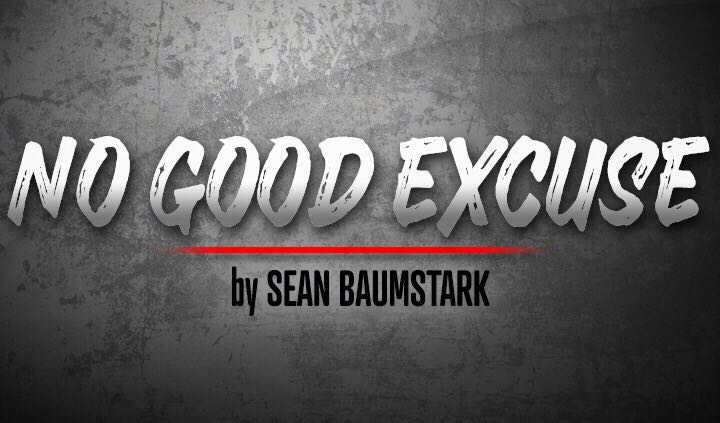We Shouldn’t Let Our Circumstances Justify Our Excuses
Written by |

I’ve noticed that I often get held up or feel paralyzed by the excuse of not knowing what to do.
I label it as an “excuse” because I believe that doing nothing is never the right thing to do. Of course, there are some things we shouldn’t do. But inaction is never one of them — at least not in my book.
We may sometimes do the wrong thing, or take a particular action and regret it later. But I’d much rather regret something that I’ve tried than regret not knowing what could have been because I didn’t act at all.
Some say it’s better to have tried and failed than to have never tried at all. Thomas Edison and Abraham Lincoln are often used as examples in discussions like this one. Opinions differ on the precise number of attempts that Edison made before inventing the lightbulb, but it’s believed that he created hundreds or even thousands of “failed” prototypes. Lincoln had a resume full of lost elections before he became president.
We often look back on particular years or specific seasons of our lives and realize we haven’t moved very far, or at all. We haven’t grown, learned, or gotten better. We’ve been holding out, waiting for the right time or the perfect set of circumstances.
Join the Friedreich’s Ataxia News forums: an online community for people with FA and their caregivers.
Sometimes this inaction may be strategic; for example, posting your #summerbod photos after your success with an exercise routine or diet. Waiting until you reach that milestone or finish line makes sense, but only if you are taking action in the right areas during that period.
If you aren’t actively working toward something, the “right time” will never find you.
When biding your time isn’t strategic, it becomes accidental and sometimes detrimental, whether in business or relationships, sports or finances, career or education. How many times have you thought or heard someone else say, “I waited too long?”
“I was going to clean the kitchen before you got home, Mom,” but you didn’t, and now mom is home, and she’s frustrated. “I was going to call you on your birthday, friend,” but you didn’t, and now your friend is sad. “I was going to invest in that tech company, but I never pulled the trigger,” and now the shareholders are boasting about their net worth and the company’s performance on the stock market.
These things happen, and they always will. The challenge isn’t so much about waiting for “just the right time” or the stars to align. The choice is between action and inaction. Make a move or sit on the sidelines; put something in motion or stay in bed.
If not moving is deliberate, then I call it action. Take the housing market as an example. Waiting to buy a home until the market is ripe for purchasing is strategic. On the other hand, you might regret waiting to sign a contract because you can’t find your favorite pen or because the real estate office isn’t conveniently located when prices increase before you’ve locked in an offer or interest rate.
Many people say that “experience is the greatest teacher.” Author and leadership expert John Maxwell argues that “evaluated experience is the best teacher.” In other words, learning from the past; our actions, mistakes, and successes; identifying what worked, what didn’t, and applying that knowledge, is what helps us to learn from our experiences.
Take time to evaluate your life. Pick one area: diet, exercise, work, or a relationship and ask yourself whether you have taken all of the possible actions to succeed at it. Are you giving that “thing” all that you’ve got?
Success, whether big or small, personal or professional, always requires action. I have some limitations because of Friedreich’s ataxia; you may have challenges because of your circumstances. Our circumstances may affect what we do and how we do it, but we must be careful not to allow our situations to justify our excuses.
Avoid excuses, make a move, and see what happens.
***
Friedreich’s Ataxia News is strictly a news and information website about the disease. It does not provide medical advice, diagnosis or treatment. This content is not intended to be a substitute for professional medical advice, diagnosis, or treatment. Always seek the advice of your physician or another qualified health provider with any questions you may have regarding a medical condition. Never disregard professional medical advice or delay in seeking it because of something you have read on this website.






Leave a comment
Fill in the required fields to post. Your email address will not be published.